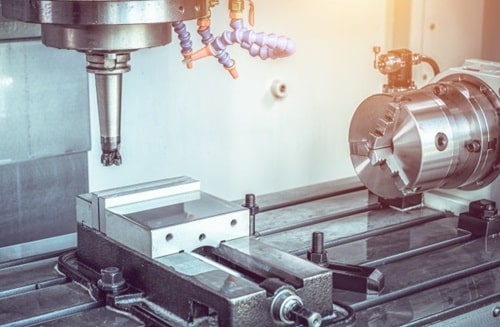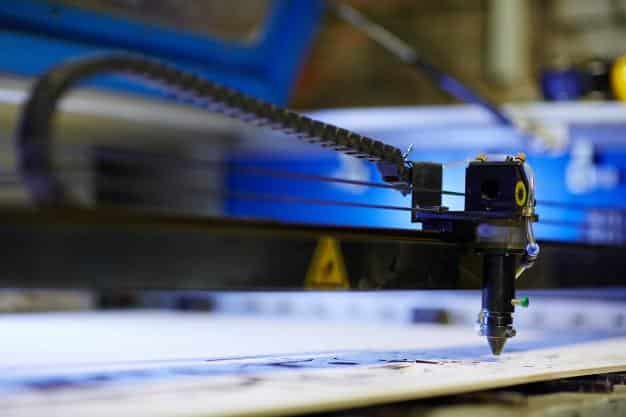Computer Numerical Control (CNC) manufacturing process involves automated controlling of machine tools like drills, mills, and lathes. Basically, a computer is used to control these parts. These machines are known for their precise, cost-effective, and error-free work. They can be found in both small businesses and big industries.
Since its first model, CNC has evolved a lot. Nowadays, different types of CNC machines are available according to need. Their number of axis of movement has been increased and they are able to manufacture.
CNC metal laser cutters play an important role in the automation of the manufacturing industry. Due to this, the whole process has become much more efficient and budget-friendly.
In this article, we are going to discuss the advantages of CNC machines in different industries.
What are CNC Machines?
It is necessary to know about the concept and working of CNC machines. The machine runs on pre-programmed computer software that controls machine tools. It is mostly used in three-dimensional cutting tasks which require high precision and accuracy.
Manual control of manufacturing machines has a lot of limitations. It requires an operator to guide and control machine components with the help of levers, wheels, and buttons.
This process involves a lot of human error and makes the process highly inefficient. To solve this issue, factories use CNC machines. These machines are installed with computing software.
An operator can program them to get the desired output. Programming is done in a specific syntax understood by the machine software. Code can be typed with the help of an inbuilt key panel.
The component designs are made using Computer Aided Design (CAD) softwares. After inputting the design, software-guided machine components flawlessly finish the job in very little time.
Over time, CNC manufacturing has made a great impact in the manufacturing industry. Their capability of working with almost every machine tool makes them unique and productive. For instance, the deployment of EVS robotic arm for CNC to the machine makes it capable of automating almost any task.
Productivity Benefits of CNC Machines
Computer-controlled manufacturing surely provides an edge over manually guided processes. It not only decreases human error and the cost of manufacturing but also increases the overall productivity of the industry.
Due to these advantages, many industries use CNC solutions. Let’s have a look at its detailed productivity benefits in different industries.
1. Aerospace Industry
This industry involves very accurate tasks. Even a small mistake in manufacturing can cause technical problems by increasing component weight or decreasing drag due to error in shape of the component. These problems may result in huge losses to the industry.
CNC is used to manufacture aircraft parts like landing gear, airfoils, manifolds, etc. The ability of CNC to work with different durable materials like titanium, aluminum, and nickel. Makes it a lot more productive than other machines.
Considering the demand of this industry, along with precision, a fast rate of manufacturing is also necessary to meet the high market demands.
In case of any design update or mistake, the process can be stopped anytime and component design can be updated in the software. This flexibility gives CNC an edge over other machines.
2. Oil and Gas Industry
Large machines used in drilling rigs require perfectly manufactured parts that fit precisely in their place. If not placed properly, they can leave gaps that can ultimately lead to leaks.
These kinds of errors can cause material wastage and increase the time to complete industrial operations. Hence, they affect productivity to a great extent.
CNC machines are used to create these small parts like drill bits, rods, and pins perfectly and ultimately contribute to the overall productivity of the oil and gas industry.
3. Electronics Industry
Manufacturing electronic products like computers, laptops involves various complex processes like creating Printed Circuit Boards (PCBs), making outer chassis of laptops, and cutting anodized metals like aluminum.
Consumer electronics is one of the largest manufacturing industries in the world. Due to its high demand, components must be manufactured with high speed and productivity.
3D models of laptop bodies and schematic diagrams of PCBs are created on software and are manufactured by CNCs. Manual development of such components requires a lot of precision and takes hours. CNC completes its job within minutes and helps the industry to stay productive.
4. Metal Removal Capabilities
Several industrial components need the removal of metal from raw material to give them desired shape. These components can be of any shape depending on their function. Metal removing jobs are performed by using different machine attachments like drilling, milling, and lathe.
Usually, machines can only work with limited attachments. Hence, different equipment is required for different purposes. This makes the process very tedious and unproductive.
Using CNC to remove excess metal can be a lot more productive as one machine is capable of working with different attachments. With slight changes in the program, we can achieve better and faster results.
Mostly, metal removal processes include grinding of inner and outer diameters. Carrying out these complex processes on manually controlled machines can take a lot of time and has chances of making errors.
5. Metal Fabrication Ability
In many industries, steel plates are needed for various purposes, and in the manufacturing industry, CNC machine tools are used for various processing operations on these plates. The operations include flame, plasma, or laser cutting, stamping, shearing, forming, and welding.
In order to achieve the final shape of the sheet, a CNC laser and a CNC plasma cutting machine are usually used. The CNC turret punch is used to drill holes in various sizes of plates.
A CNC bending machine is used to bend the sheet to its final shape. In some cases, CNC backstops are used in combination with shears, which can control the length of the plate to be cut to suit different applications.
Conclusion
Features and applications of CNC machines are endless. Their ability to perform various complex operations with ease and perfection makes it unique and the best solution for productivity in several industries.


Leave a Reply
You must be logged in to post a comment.